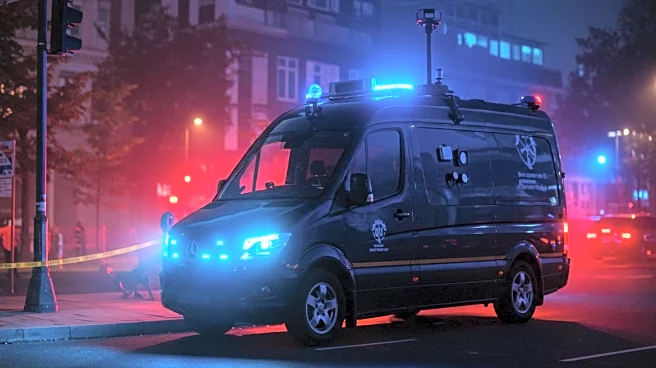What's Happening?
The UK government has announced the expansion of live facial recognition (LFR) vans across seven police forces in England to locate suspects for serious crimes. The technology, which scans faces and checks them against a list of wanted individuals, has been used in London to make numerous arrests. However, the expansion has raised concerns from privacy advocates, including Big Brother Watch, which is challenging the use of LFR in court. Critics argue that the technology is intrusive and lacks a legislative framework, while the government maintains it is a powerful policing tool used proportionately.
Why It's Important?
The expansion of facial recognition technology in policing raises significant privacy and ethical concerns. Critics warn of a potential surveillance state, where individuals' movements are constantly monitored. The lack of a clear legal framework governing the use of LFR technology could lead to misuse and false identifications, impacting civil liberties. The government's consultation on safeguards is crucial to address these concerns and ensure public confidence in the technology. The debate over facial recognition reflects broader societal tensions between security and privacy.
What's Next?
The government is conducting a consultation to establish safeguards and a legal framework for facial recognition technology. This process will involve discussions on transparency, public confidence, and the ethical use of the technology. The outcome of the legal challenge by Big Brother Watch could influence future deployments and regulations. Police forces will need comprehensive training to effectively use the technology while addressing privacy concerns. The consultation may lead to new legislation that balances security needs with individual rights.









